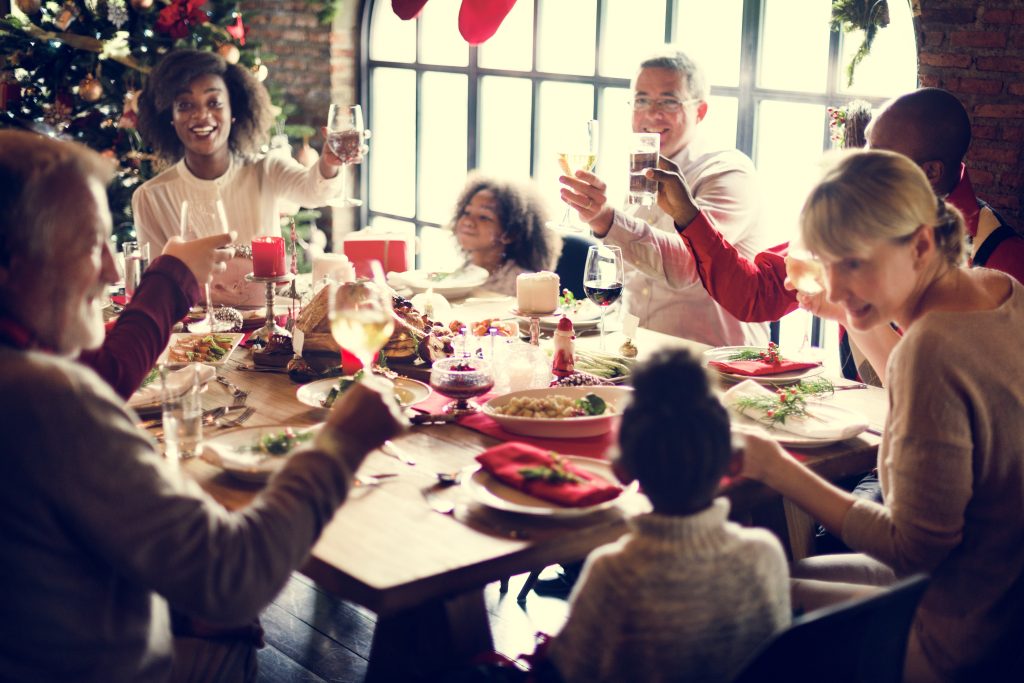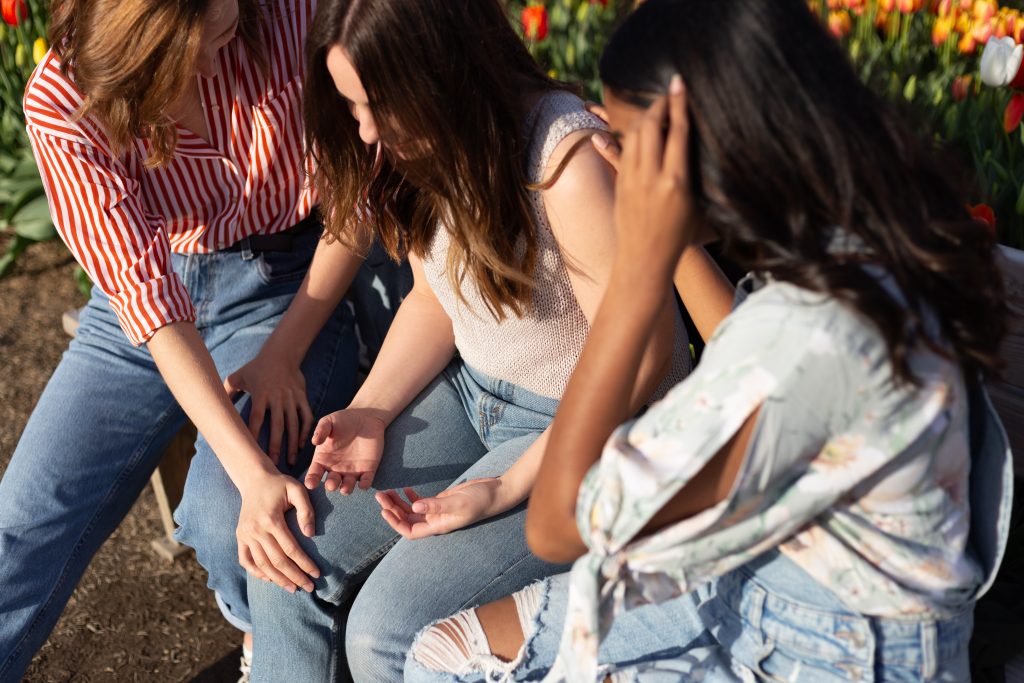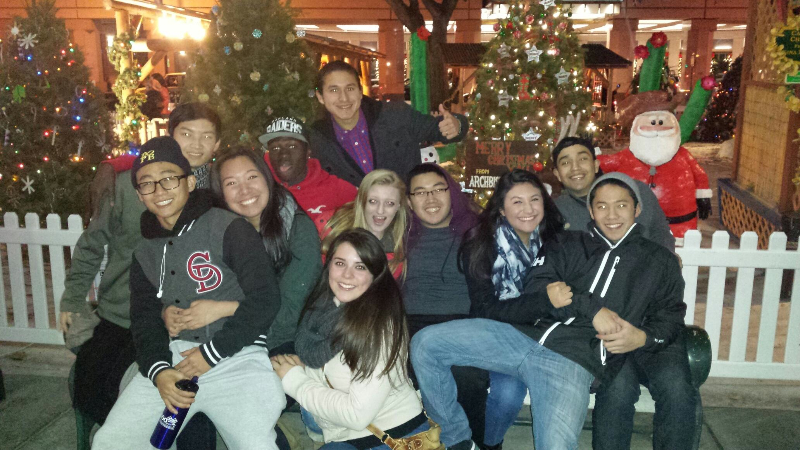
Cancer and the Holidays: 5 Tips That Will Improve Everyone’s Experience
The holidays are typically seen as a time to celebrate, be with family and friends, exchange gifts, and honor religious or other cherished traditions. When a cancer diagnosis enters the picture, patients and their caregivers can feel disconnected, isolated, and out of sync with everyone else. There can be a lot of extra stress and uncertainty about what’s ahead, wanting to be part of the celebration but knowing that things won’t be the same this year, and feeling pressure to put on a happy face when they may not be feeling it. And for supportive family and friends, they may struggle with what to do and say and how to celebrate when it might feel selfish to be joyful.
Cancer takes so much from our loved ones. Don’t allow it to take away the relationships and special moments we have to spend together, especially during the cherished holidays.
Support Squad Webinar Recap
In our fifth episode of the Support Squad Webinar Series, Cancer and the Holidays: What to do when it doesn’t feel like there is much to celebrate, we discussed how the experience looks different depending on where they are in their cancer journey, the importance of clear communication and expectation management, and offered some tips and strategies to reduce stress and redesign the holidays so they are the best they can be given the circumstances.
We had the chance to hear firsthand from young adult cancer survivor Chiara Riga about her experience with cancer in the midst of COVID-19, from bereaved caregiver Abby Westerman about her struggles both during her 20-year-old daughter’s cancer treatment and during the holidays since she has passed, and from AYA cancer patient advocate Kara Noskoff on the many ways to bring “home” into the hospital, particularly during the holidays. Listen to the full episode here.
Tips to Improve the Holiday Experience
Tip 1: Be Present, Not Perfect
Striving for holiday perfection introduces a lot of added pressure and stress for families impacted by cancer who may not have the energy or resources to achieve this unreachable standard. The secret to creating a more meaningful and less stressful holiday? Be present, not perfect.
Ensuring loved ones with cancer feel included, seen, and heard, and asking them who they want to see, what activities are important, and where is the least stressful place to celebrate will result in a fulfilling, meaningful, and memorable holiday. The three key elements to being present and improving connection and support apply equally well when planning for the holidays when cancer enters the picture.
- Understand what your loved ones are going through.
- Clearly communicate needs and manage expectations.
- Work together to provide support.
By understanding their experience and challenges and focusing on what is most important to our loved ones impacted by cancer, a new holiday plan can be created that offers the chance for new traditions and memories ready to be made.
Tip 2: Understand What Your Loved Ones with Cancer are Going Through
Depending on where each person is with their cancer experience, the needs and holiday adjustments will look different. If they are undergoing treatment, there may be physical and emotional changes like:
- Sensitivity to certain foods or smells
- Compromised immune system – at higher risk when exposed to people who are sick
They might also be stuck in the hospital, which can be especially difficult during the holidays when all they want is home. Find ways to bring “home” holiday traditions and normalcy to them and involve them in the process.
If they are no longer undergoing treatment, they may be adjusting to their new normal. However, they may still have residual effects, including anxiety, depression, physical changes, mobility limitations, or reduced energy. They may also be focused on moving forward and want to be more involved in the holiday plans without being babied.
If the person with cancer did not survive, their family and friends might be struggling with grief and loss. The holidays can be particularly difficult and triggering when that special person is no longer present.
Whether you are planning the celebration or are a supportive family member or friend, it’s essential to understand what they are going through, what is creating stress, and what concerns or limitations exist to help reduce stress and give them the normalcy they desire.

The post “Navigating the Holidays: 5 Things Cancer Patients Wish You Knew” provides several helpful reminders from the perspective of the cancer patient/survivor:
- “I don’t want the holidays to be all about my cancer. They want normalcy and to enjoy time with their special people.
- “Don’t baby me. They are not broken. Treat them like a person, not a patient.
- “Go ahead and ask. I know you want to. Ask, but don’t dwell on it. There are lots of other things they enjoy talking about!”
- “Just enjoy the little moments with me. Be present. Time is the most important thing. Enjoy the people in your life!”
- “You can still be happy. In fact, I would prefer it. You are not selfish for talking about you. Don’t feel guilty about the good in your life.”
We would add the following for bereaved caregivers, family, and friends:
“Let me keep my loved one’s voice and memory in the conversation.”
Talking about loved ones can be triggering, but not talking about them can feel isolating – like everyone has moved on and forgotten them. When the loved one’s name comes up, don’t be afraid to talk about them, and avoid changing the subject. Be aware, read the room, and hold space when it is clear that a memory is important or emotionally triggering. Your support and understanding will mean a lot.

(In loving memory of Kirsten Westerman)
Tip 3: Clearly Communicate and Manage Expectations
Good communication is vital to an improved holiday experience. Be clear on specific needs, concerns, and priorities for the holidays. Think of it this way: If you don’t communicate what is needed, you will get what they think you need. Although some people will be in sync with your every desire, most will appreciate clear guidance on how to support or adjust and will be more than happy to do so.
And remember, good communication goes both ways. If you don’t know what they want, ask them. A great example is the guidelines for in-person gatherings in the face of continued COVID-19 concerns. Be sure to ask cancer survivors about their concerns and make accommodations accordingly. If they are more comfortable with outdoor gatherings, find a way to make that happen. If attending guests live in households with unvaccinated occupants, ask how they feel about possible indirect exposure.
Bottom line: Don’t make them guess – it just adds stress.

When it comes to the holiday traditions and rituals, work with survivors or caregivers to identify what is most important to them during the holidays and clearly communicate that ahead of time so family and friends can adjust their plans and expectations. If you haven’t seen each other in a while, prepare them ahead of time for any changes that might catch them off guard. If you are a caregiver, let them know your emotional status and where you could use some help.
One approach is writing a Cancer Letter to family and friends that is authentic and reflects your situation and concerns. It can be a great tool to address the elephant in the room, provide power and control over the narrative, and help introduce and navigate the alterations to the holidays, mitigating uncomfortable discussions during get-togethers. Letting people know ahead of time creates realistic expectations and lessens any awkwardness someone might feel if they react with surprise.
When it comes to boundaries, don’t think about what you “should” be doing, but rather what you need to do to protect your mental and physical health. If you have any special needs to be addressed, make sure they are known in advance. This can include:
- Accessibility
- Mobility
- Dietary needs/limits
- Hygiene/protective equipment needs
- In-person gathering concerns/limits
- Rest/quiet spaces to retreat
Anything that will make your experience more comfortable and less stressful should be shared. Decide in advance how much information you want to offer, and consider preparing answers to uncomfortable questions they may ask so you aren’t caught off guard. It is okay to set limits, say no, and ask for help. Be honest with yourself and your family. Being clear about needs or asking for help is not a sign of weakness. People want to be supportive and just need simple guidelines or instructions, so give them that chance with clear information. Finally, don’t feel guilty for declining requests or changing plans. People will understand.
Tip 4: Define Priorities and Refine the Holiday Rituals
Traditions and rituals are important, and while they can be comforting, they can also create an unrealistic vision for the “perfect” holiday. With a new perspective on life, some things may no longer feel important or have the same value they once did. Some can even be triggering and bring up emotions that are still fresh. Not all activities will be as easy as they once were. Assess and prioritize the activities and people that are important and focus on those. Allow adequate time and make adjustments so they are still doable. Be okay with change. Remember, it can lead to new experiences, new memories, and new opportunities for growth.

To reduce stress, something has to give this holiday, but what? How do you decide what is important and what can be skipped (or delegated to a supportive family member or friend) this year? Distill your rituals down to their essence – why is that particular activity important? Usually, the activity is not what’s important, but rather the value is in spending time together and creating memories. If that activity is too tiring, brainstorm alternatives that give you time together without the same feelings of exhaustion.
Check out redesigning the holiday, to learn the five steps that will help clarify where the focus should be this year.
- Try to focus on enjoying the new traditions and special moments, rather than how cancer has changed a holiday or special occasion.
- Be realistic about what you can do. Schedule activities when you have the most energy. Allocate additional time to prepare – for example, cook ahead and freeze meals. If it is easier to do certain things online – do it! You can online shop, order food and have it delivered, etc.
- Find the right balance between celebrating with family and friends and spending time on your own.
- Give yourself permission to pace your activities and to decline an invitation or two so that you have the energy to enjoy the gatherings that are most important to you.
Tip 5: Involve the Support Squad in the New Plan
Once family and friends are aware of the new holiday plans, they may have additional questions about how they can help, what they can bring, gift ideas, etc. Remind them of what is on the buy/don’t buy list due to cancer-related sensitivities.
Remember that presence, making new memories with special people, and overall normalcy are often valued over gifts. When selecting gifts, practical things that will make a difference in their quality of life are a safe bet but be sure to ask what is important to them.
If they are in the hospital or can’t attend the gathering at the last minute due to health concerns, prepare a separate meal for them and have it delivered. They will appreciate feeling included and loved even though they could not be there in person.
In Summary
Every situation is different, but implementing the simple tips above will create an inclusive, meaningful, and memorable holiday. Understand what they are going through and what will help reduce stress. Keep it simple – only do what is doable and important. Focus on being in the moment with each other and enjoy the holiday celebrations in whatever form they take, whether in-person or virtual, big or small.
Follow your loved one’s lead during conversations, and hold space when things get uncomfortable or emotional. If your loved one can’t make it to the holiday celebration, find ways to bring the essence of the holiday to them so they feel included and remembered. Be open to change and new activities – it is the opportunity for creating new memories.
